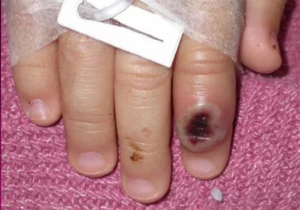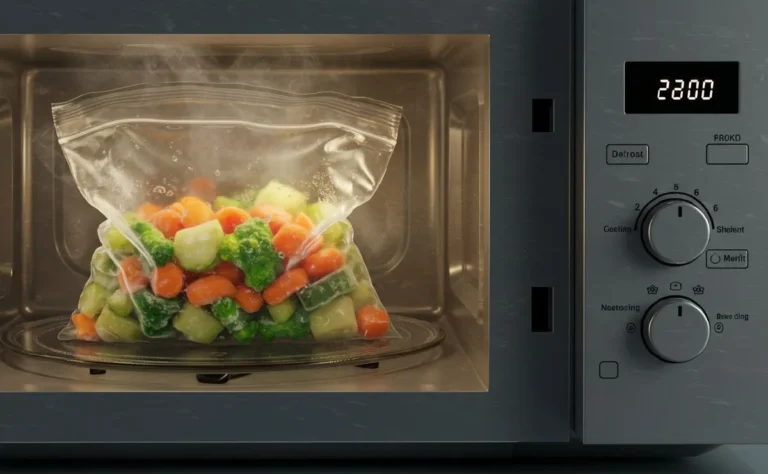Healthy teeth are important for your baby’s overall health, as they help with eating and forming sounds and words. They also affect the way the jaw grows. Therefore, taking proper care of your child’s teeth is vital to prevent infection, disease, or other dental problems. In addition, teaching your child oral care is a great way to establish good habits as they grow.
The appearance of a baby’s first tooth is a source of excitement for parents, as is the continuation of the eruption of the other teeth. A tooth is made up of several tissues: a vein or artery that can give rise to dentin, the mineralized tissue of the tooth’s nerve, plus enamel, the hardest tissue in the human body, explains Esthefani Solís, a pediatric dentist.
The first teeth are commonly called “baby teeth” because popular culture associates them with the white color of milk and a bluish tone, characteristic of pure milk. These teeth begin to appear between four and seven months, although each baby is different and grows at his or her own pace.
The first teeth to appear are the lower incisors, also known as the central incisors. Then, between 4 and 8 weeks, the four upper incisor teeth (central and lateral) follow. Approximately one month later, the lower lateral incisors (the two teeth located on either side of the lower central incisors) will appear.
The next teeth to come in are the baby molars (or molars, located at the back of the mouth, which are used to grind food) and finally, the upper canines (the pointed teeth in the upper jaw).
Signs
When babies start teething, they may drool more and want to bite more objects. Some babies do not experience any pain from teething. Others experience brief periods of irritability, and others may show fussiness lasting several weeks, with crying spells and changes in sleeping and eating patterns.
Although tender, sore, and swollen gums during teething may cause a baby’s temperature to rise slightly, teething should not cause a high fever or diarrhea. If your baby is experiencing these symptoms, there is likely something else causing the fever.
“Teething can be an uncomfortable process. If your baby is very irritable, has a fever or diarrhea, it is best to talk to the doctor so that he can be checked and determine the reason for his discomfort and symptoms,” says Juan Carlos Romero, the pediatrician.
If it is not necessary to go to the doctor, but your baby does not stop crying or complains of discomfort in the gums, here are some recommendations to make teething more bearable:
- Constantly wipe your baby’s face with a soft cloth to remove excess drool and prevent skin irritation.
- Give your child a cold teething ring or a cold washcloth to chew or suck on, which will help reduce inflammation of the gums. Leave it in the refrigerator for 30 minutes or until it freezes. It should not be too hard, to avoid putting pressure on the baby’s swollen gums and causing further injury. You can also choose to give your child something to bite on, making sure it is large enough to prevent swallowing.
- Some parents tend to give cold foods, such as ice cream, during the teething process. This is a good option only if the child is already eating solid foods. Remember to watch your child closely while he or she is eating, to make sure the ice cream has not broken into very small pieces that could pose a choking risk.
- Wash your hands thoroughly and rub your gums with a clean finger. Do it slowly and gently. Don’t forget to wash your hands afterward.
- Before giving your baby any medicine, check with your doctor. You can even ask your dentist or pediatrician if you can give him paracetamol or ibuprofen to relieve discomfort.
- Do not place aspirin on your baby’s teeth. Rubbing alcohol on the gums could cause health problems for your child.
When to brush your teeth?
Specialists agree that dental care begins before the first teeth appear because even if we don’t see them, the teeth are already there. They begin to form in the second trimester of pregnancy. So when a baby is born, he or she already has 20 baby teeth, some of which are fully developed inside the jaw.
Baby teeth are important because, in addition to helping with chewing and speaking, they hold space in the jaws for when the permanent teeth that are growing under the gums come in. When a tooth falls out too early, the permanent teeth can move into the space and make it difficult for other teeth to find their place.
Before teeth start to emerge, you can wipe your gums with a damp cloth after every meal to remove any harmful bacteria. This will help keep your mouth clean.
As soon as teeth start to appear, brush them with a toothbrush for infants. Use water and a small amount of toothpaste, about the size of a rice ball. This is because the amount of toothpaste your baby swallows is vital. By about two years of age, your child should learn to spit while brushing, so you can avoid giving him water to rinse with, which can make it easier for him to swallow toothpaste.
You can use toothpaste that does not contain fluoride, as it is safer for your baby to swallow. However, consult your doctor about which toothpaste is best for your baby’s teeth and gums.
Until the teeth begin to touch each other, you can use dental floss to pass it between adjacent teeth. Do it gently and slowly, so that the baby does not get uncomfortable and cry.
Feeding and teething
“It is important to note that if babies do not have good eating habits, they can also develop cavities. It is common for babies to fall asleep sucking on a bottle, but this can damage their teeth because if the sugars in juice or milk remain stuck to the teeth for several hours, they could corrode the tooth enamel and cause a condition called bottle mouth or infant caries,” says Andrea Bonilla, nutritionist.
When you have milk teeth, it is important to consume dairy products, foods rich in mono-polyunsaturated fats such as walnuts, hazelnuts, or almonds, and foods that are precursors of vitamin D such as cereals, fruits and vegetables. It is also recommended to avoid sugars and fermentable carbohydrates.
“To maintain a good diet that helps the growth and health of teeth, we must include proteins, calcium, vitamins A, C, D, and K in children’s meals, since these will help maintain healthy gums and develop tooth enamel,” emphasizes the specialist.
Visit to the dentist
The American Dental Association recommends starting to take children to the dentist around their first birthday. At the first visit, the dentist will explain the proper techniques for brushing and flossing your baby’s teeth while he or she is sitting on your lap, explains Kidshealth.
Esthefani Solís, a pediatric dentist, says that it is not necessary to wait until the first year. A visit to the doctor can be made from the moment the teeth come out since the visit could help detect early problems, guide parents in taking care of their children’s oral health, and help the baby get used to visiting the dentist.























+ There are no comments
Add yours